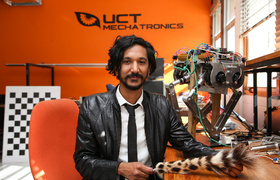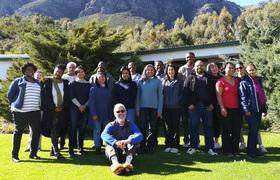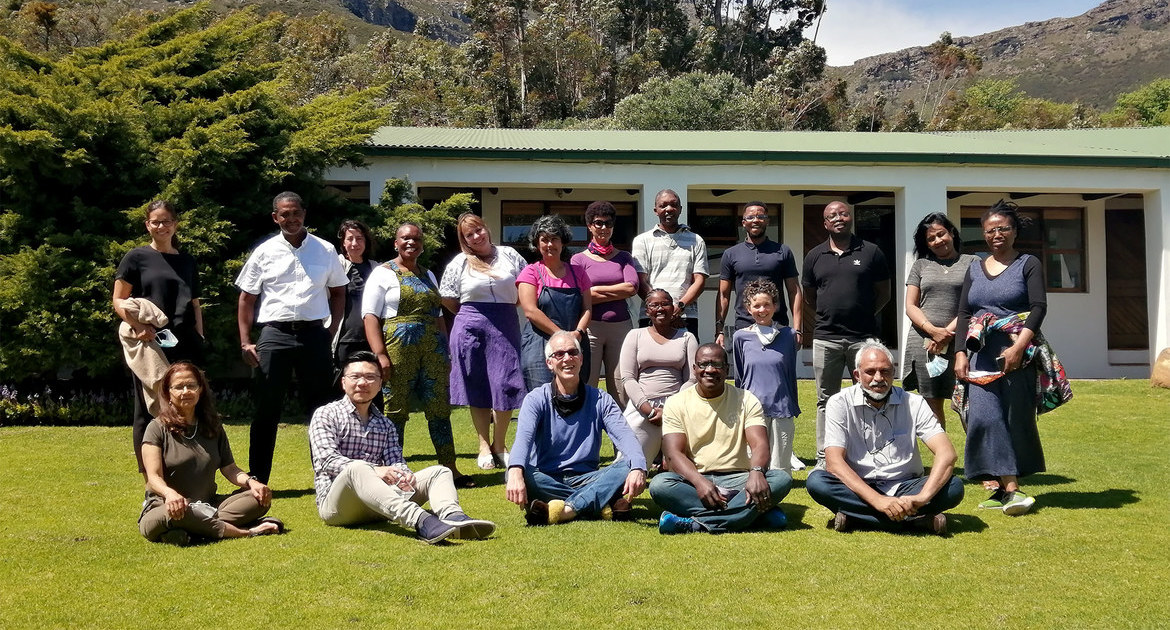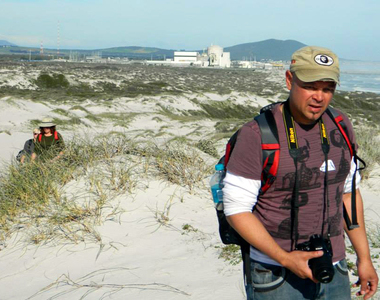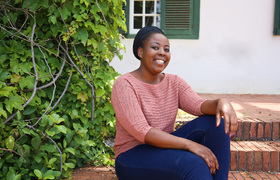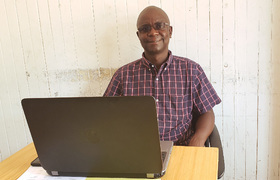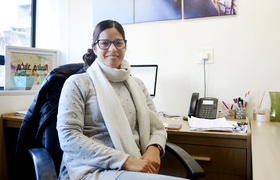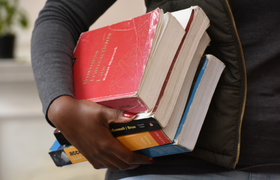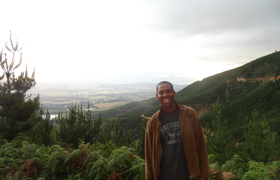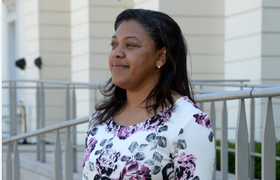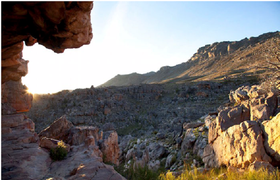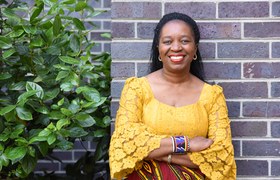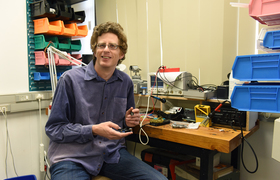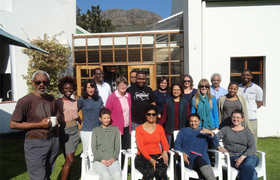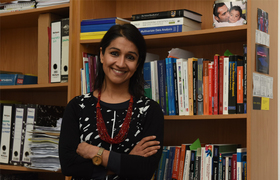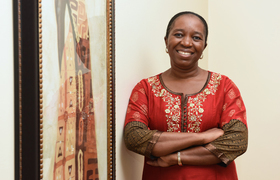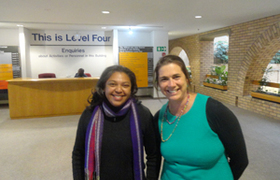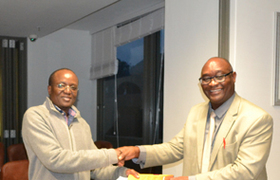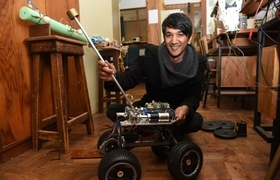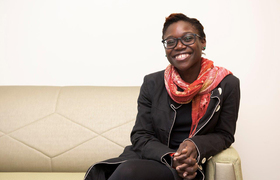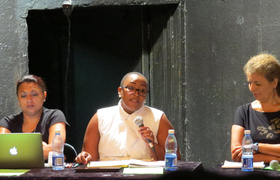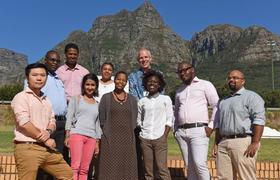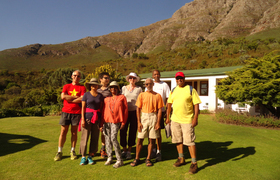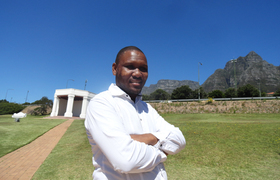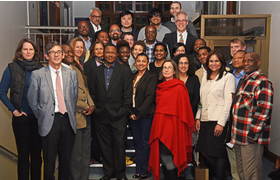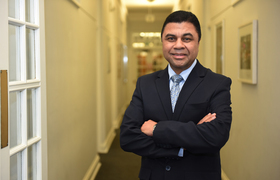Transformation crucial ‘at all levels’ at UCT
23 October 2018 | Story Susan Segar. Photo Je’nine May. Read time 10 min.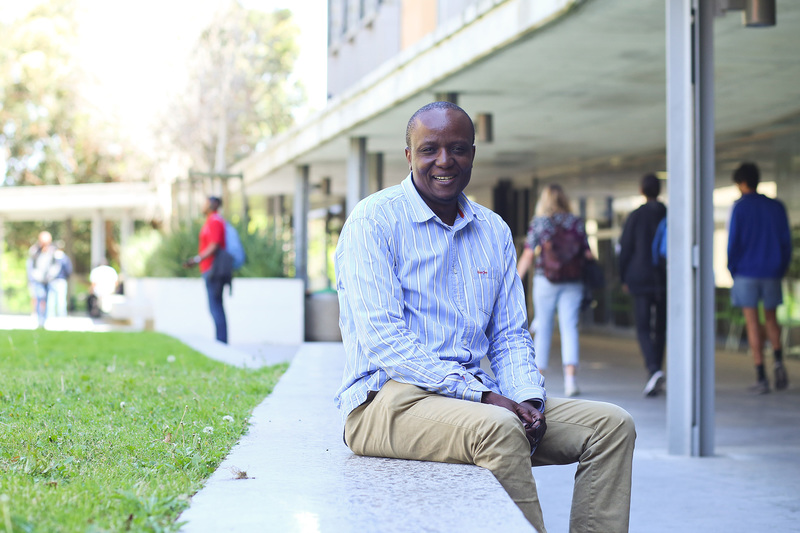
The University of Cape Town (UCT) is a “truly great” institution with an excellent reputation and a good history – but to sustain this greatness in the current political and social environment of South Africa, the university must deal practically with the issue of transformation.
And the Next Generation Professoriate (NGP) programme is exactly the kind of key intervention helping effect transformation at senior leadership level, said NGP member Manya Mooya, associate professor and programme convenor, BSc/BSc(Hons) in property studies.
The NGP programme, launched in 2015 and funded by the Vice-Chancellor’s Strategic Fund, aims to contribute to transformation by advancing the development of black and female academics. It is headed by Professor Robert Morrell, who, concerned about the racial demographic inequalities of the university’s professoriate, decided to help address the issue by providing support and developing opportunities for mid-career academics at UCT.
Mooya, who has been a member of the NGP from the start, said that the more transformed the professoriate is at UCT, the more chance there is of changing the entire institutional culture. The reality at UCT is that there is a relative under-representation of certain groups at professorial level.
He said substantial demographic changes had taken place at UCT in recent years.
“But, given these changes, it is crucial that transformation takes place at all levels of the university. UCT has transformed in terms of the demographics of the student population. Now it is important for this transformation to be reflected in the professoriate.
“In the students’ minds, if the professoriate is not truly representative then students will not see themselves reflected in the institution. If that becomes a problem, it could create instability in the system and threaten the very foundations of the university,” he warned, adding that transformation at this level would help enhance excellence.
Demonstration of support
Of his own role in the NGP, Mooya said he had been ambivalent about his initial nomination.
“While I was, of course, happy to join, it is a two-way thing. There could be a perception that because you’re a member of the cohort you get ‘wind in your sails’, ie you get extra support that is not available to everybody – and I was not keen to be associated with something like that. Many of us in the cohort are very conscious of that element,” he said.
“But on the other hand, I joined because I can see that the university as an institution is clearly committed to try and do something with transformation at this level. I see my participation as a demonstration of support of that initiative and as a political statement of intent. I want to demonstrate my support of the university’s strategic direction.”
“In the students’ minds, if the professoriate is not truly representative then students will not see themselves reflected in the institution.”
Mooya was born in the small rural town of Mazabuka in Zambia, where he graduated from The Copperbelt University with a BSc in land economy in 1997. He then moved to Cambridge University, where he completed an MPhil in land economy in 1999, followed by a PhD in real estate at the University of Pretoria in 2009.
He started working as a property valuer and consultant in Zambia in 1997 before entering academia. He lectured at the Polytechnic of Namibia from 2002 to 2006, then moved to UCT in 2009 as a senior lecturer, becoming an associate professor in 2017.
“When I first started at university, I wanted to be an architect … so I did architecture in the first year of my undergraduate education. I realised it was not for me when my professor looked at one of my designs and laughed. That was a seminal moment for me. So I moved into land economics. What I love about this area is that it is not only vocational, but intellectual.”
Transforming the curriculum
Mooya’s research and teaching expertise includes the philosophy of science, real estate valuation theory, and real estate market analysis.
Morrell described the “self-effacing” Mooya as a remarkable scholar and philosopher in the Department of Construction Economics and Management.
“He is a deep and careful thinker. He has built up his area of specialisation and has four PhD students aiming to submit their theses in the next three to six months. He is a key player in the land expropriation debate and is an adviser to government,” he said.
“His advice a couple of years ago led to the creation of the post of Valuer-General in South Africa. His book Real Estate Valuation Theory (Springer, Berlin, 2016) will, I think, be recognised in time as a classic.”
Mooya has also been closely involved in creating a new and decolonised curriculum in his department for the property studies degrees, transforming a curriculum that has not changed since the programme started about 20 years ago.
“We are currently at the end of three years of student protests which were, in part, about the curriculum, so it is an opportune time to be engaged in this exercise. The plan is to implement our new curriculum in 2020 which means we must have Senate approval in 2019.
“We’ve invested a lot of time and energy developing what we think is a curriculum that responds to rapid changes around the world in many areas.
“We have looked at the increasing complexity of the property market; we have revised the curriculum to be sensitive around issues relating to informal property as well as customary property. We look at everything in a more holistic way,” Mooya said.
Other issues they took into account included the effect on property of the explosive growth of technology, along with sustainability and the environment, and how buildings use energy and contribute to carbon emissions.
“Our curriculum responds also to this dual economy in South Africa (where a ‘first-world’ economy operates alongside a developing country one). If the proposed curriculum is approved, it will be a validation of a lot of work that’s been put in.”
“I have been involved in developing regulations that make the determination of compensation for land expropriations practical and operational without changing the Constitution.”
Land expropriation debate
As South Africa continues to debate issues of land expropriation, Mooya is working outside the university providing technical support to the Office of the Valuer-General in respect of how compensation for land distribution can be determined without changing the Constitution.
“There is this whole debate about what we can do with the current Constitution and whether it should be amended. I have been involved in developing regulations that make the determination of compensation for land expropriations practical and operational without changing the Constitution.
“These regulations provide a legal framework for operating in the existing constitutional framework, so that we don’t have to change the Constitution. My hope is that these regulations might help solve some of the problems in the debate,” he said, adding that is completely unnecessary to change the Constitution because it has adequate provisions to avoid expropriation without compensation.
“These regulations I am talking about are critical.”
Mooya believes he’s not a lone voice either.
“A lot of people understand the issue and agree that it is not the Constitution that is the problem. This is not only a technical question … it is also a political question. The government has access to advice – but the state also has to respond to its constituents.
“People respond to certain rhetoric in the political space so a politician might not take the advice of a technocrat if that advice doesn’t translate into electoral victory. Ultimately, politicians have to win elections and often winning elections is not necessarily consistent with good policy decisions. We may be in that space right now.”
He hopes the regulations will provide the policy makers and politicians with what he calls an exit off-ramp from a particular path so they look at the land debate within the bounds of the Constitution.
“Expropriation without compensation could be really dangerous. It would be ruinous for the property market and the economy. It is unnecessary to go that route.”
Closing the gap
When he’s not working, Mooya loves reading, and is currently reading Fear – Trump in the White House by Bob Woodward and The Land is Ours by Tembeka Ngcukaitobi. He is deeply disturbed by the rise in authoritarianism and populism around the world, which has become a “much darker place”.
He is constantly asking himself what it would take to close the gaps that exist between Africa and the developed world.
“I went to school in rural Zambia but also to elite Cambridge. While travelling around Europe, I saw how my country and continent are lagging behind. The question I always ask myself is what would it take for us to catch up with the rest of the world?”
Steps towards transformation include initiatives like the NGP.
“I really wish this cohort success. It has so much potential, but it does need enhanced financial support. To be truly successful, the NGP must make an impact on the whole climate and culture of the university,” Mooya said.
 This work is licensed under a Creative Commons Attribution-NoDerivatives 4.0 International License.
This work is licensed under a Creative Commons Attribution-NoDerivatives 4.0 International License.
Please view the republishing articles page for more information.
Next Generation Professoriate (NGP)
The Next Generation Professoriate (NGP) is a mid-career academic staff development and support programme. Funded by the vice-chancellor’s Strategic Funds, the NGP addresses demographic inequalities in the academic hierarchy. The goal is to help members become associate and full professors.
The NGP was officially launched in September 2015. By the end of 2018, four of its members had been promoted to full professor and a further 14 had reached the rank of associate professor.
The programme is led by Dr Robert Morrell, who has over 35 years of academic experience in South African universities. He has a B1-rating from the the National Research Foundation (NRF) and is an elected member of the Academy of Sciences in South Africa.
Newsletters
In the news
